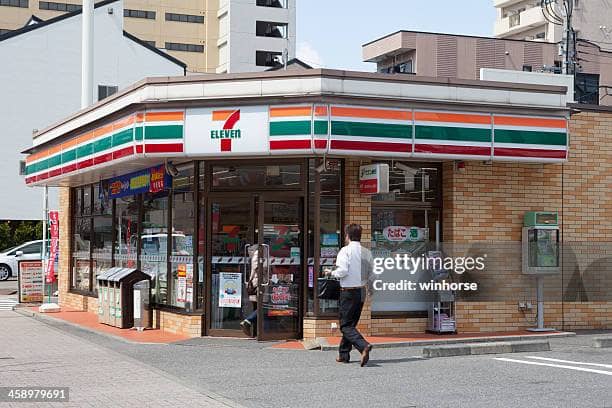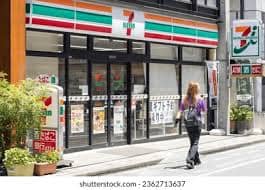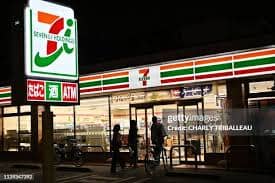
In recent months, Seven & I Holdings, the global conglomerate behind the popular convenience store chain 7-Eleven, has found itself navigating complex economic waters. U.S. tariffs and shifting consumer confidence are compelling the company to closely reassess its operational strategies, particularly focusing on cost management, supply chain efficiency, and market adaptability.
The Growing Pressure of U.S. Tariffs
Under the shadow of ongoing trade disputes, U.S. tariffs have introduced uncertainty into the retail sector. Tariffs enacted under various international trade policies are beginning to noticeably impact consumer behavior, directly influencing retail dynamics. In April alone, consumer sentiment in the U.S. dropped markedly, with inflation expectations hitting highs unseen since the early 1980s. This combination of higher costs and reduced consumer confidence represents a critical challenge for retailers, notably convenience chains like 7-Eleven, whose market strategies hinge upon price sensitivity and consumer convenience.

Seven & I Holdings: Historical Resilience and Strategic Innovation
Founded in 1927 as the Southland Ice Company in Dallas, Texas, 7-Eleven has evolved from selling ice and basic provisions into a global convenience store powerhouse. Since its acquisition by the Japanese conglomerate Seven & I Holdings in 2005, the brand has significantly expanded, boasting over 12,000 stores across North America alone.
Seven & I Holdings has historically emphasized strategic resilience, evident from its swift responses to market fluctuations and consumer demands. Amid the current economic uncertainty, the company’s incoming CEO, Stephen Dacus, has emphasized a renewed focus on the critical examination of supply chain operations. Dacus acknowledges that maintaining profitability and customer loyalty in a high-tariff environment demands rigorous cost control and innovative approaches to logistical management.

Supply Chain Efficiency: A Necessity, Not a Choice
Given the intensified economic climate driven by tariff policies, supply chain management has emerged as a primary concern for Seven & I. The company recognizes that tariffs indirectly affect consumer buying patterns, thereby necessitating comprehensive internal reviews of supply chain efficiencies. By streamlining procurement processes and leveraging technologies for better inventory management and logistics, the retailer aims to mitigate tariff-induced cost pressures effectively.
This strategic recalibration includes deepening relationships with suppliers who can provide tariff-resilient pricing structures and embracing technologies such as artificial intelligence and blockchain to enhance supply chain visibility and cost-effectiveness.
A Focused Approach to the North American Market
Seven & I Holdings’ North American operations represent approximately 73% of its global revenues, underscoring the strategic importance of this region. To further strengthen its market position, the company plans an Initial Public Offering (IPO) for its North American subsidiary in late 2026. However, this move remains contingent upon favorable market conditions, acknowledging potential delays if economic uncertainty persists.

The proposed IPO aims to increase financial flexibility, facilitating aggressive investments in innovative store formats, particularly integrating Quick Service Restaurants (QSRs). This concept not only attracts consumers seeking convenience but also significantly boosts store profitability by diversifying revenue streams beyond traditional convenience items.
Corporate Restructuring and Shareholder Value
Seven & I Holdings is not limiting its strategy to operational enhancements alone. Recently, the company strategically divested its superstore business segment to Bain Capital, streamlining its operations to focus exclusively on convenience stores and related services. Additionally, it has committed to an ambitious share buyback program valued at approximately 2 trillion yen (about $14 billion) through the fiscal year 2030. These measures collectively aim to enhance shareholder value while providing capital resources necessary to withstand tariff pressures and economic volatility.
Navigating Acquisition Challenges
Adding complexity to the company’s strategic planning, Seven & I Holdings recently faced a high-profile $47 billion acquisition bid from Canadian retailer Alimentation Couche-Tard. Despite Couche-Tard’s attractive offer, Seven & I’s management has maintained caution, expressing concerns over potential regulatory hurdles, specifically from U.S. antitrust authorities. The cautious stance by management, led by Stephen Dacus—who previously chaired the committee evaluating Couche-Tard’s offer—suggests a preference for operational independence and strategic flexibility over immediate financial consolidation.
Dacus has clarified that his leadership appointment was unrelated to the Couche-Tard negotiations and emphasized that the management team’s primary focus remains on internal strategic improvement rather than external acquisitions.
Forward Outlook: Preparedness Amid Uncertainty
As tariff impacts continue to resonate through consumer markets, Seven & I Holdings remains committed to adaptive strategies designed to sustain long-term growth. The conglomerate’s approach includes meticulous cost management, proactive supply chain adjustments, strategic investments in profitable store formats, and selective divestment and investment activities to optimize corporate structure.

The retail giant’s proactive stance illustrates how large multinational corporations can effectively navigate geopolitical and economic challenges. By prioritizing consumer insights, operational efficiency, and strategic agility, Seven & I Holdings positions itself to successfully manage both current uncertainties and future market fluctuations.
Ultimately, Seven & I Holdings’ response to U.S. tariff pressures not only highlights the company’s resilience but also serves as a blueprint for other global retailers facing similar challenges. As consumer markets continue to evolve under the pressure of international trade tensions, adaptability and strategic foresight will remain essential for sustained profitability and competitive advantage.

